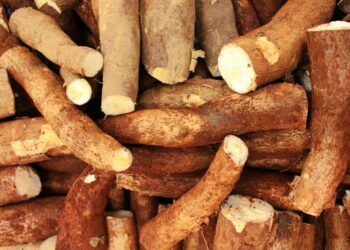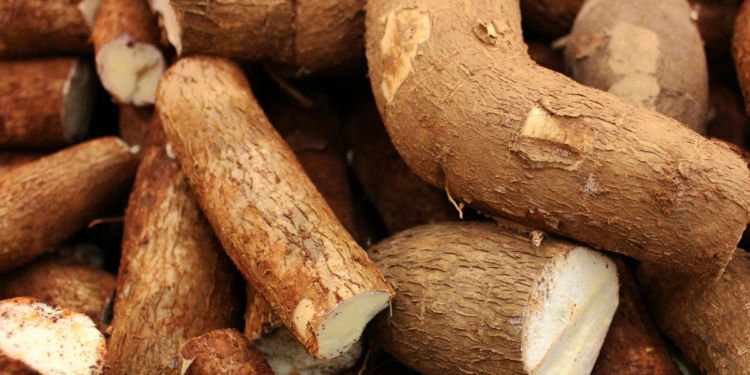Cassava is one of the most cherished staple crops grown in Nigeria, playing a central role in the country’s culinary traditions and economy. Cassava products such as garri, fufu, and starch are key components in traditional delicacies, often paired with traditional soups for sumptuous meals. Cassava is also used in making cassava flour, Pringles, shawarma, pizza, tapioca flakes, and other foods. Cassava is popular in Nigeria for its affordability and accessibility.
In addition to culinary uses, cassava is used in the production of animal feed, alcohol, starches for sizing paper and textiles, glues, sweeteners, and biodegradable products. Cassava is available in various forms, from fresh leaves and roots to modified cassava starch.

The diverse range of cassava products presents potential market development opportunities, with growing international markets in Europe, North America, and Asia recognizing cassava as a versatile, gluten-free superfood. The U.S. alone imported about 80,000 tonnes of processed cassava products, with Thailand, Costa Rica and Vietnam as main exporters.
Given Nigeria’s position as the largest producer of cassava in the world, the country has significant potential to tap into the international market for the commodity. Interest has been shown in this regard by a coalition of foreign and Nigeria-based agro companies, led by Shine Bridge Incorporated, in partnering with the Federal Government for large-scale commercial cassava processing and food manufacturing.
Exporting cassava as an economic commodity is a promising opportunity for Nigeria to boost its economy. Partnering with local cassava farmers could improve planting and harvesting practices, elevating the status of farmers and promoting the agricultural sector of the country.
While exporting cassava holds economic benefits, there are concerns about the impact on the local market. Cassava is a staple food and an affordable commodity in Nigeria. Increased exports may lead to shortages in the local market, raising demand and decreasing supply. This could result in food scarcity and higher prices.
To prevent these potential issues, the government must ensure a balanced approach to cassava production and distribution. Adequate supply should be maintained for both local and international markets. In cases of conflict between domestic availability and export demands, the government should prioritize the needs of the Nigerian population over international trade interests. By managing these challenges effectively, Nigeria can harness the full potential of its cassava industry for the benefit of its people and economy.

















